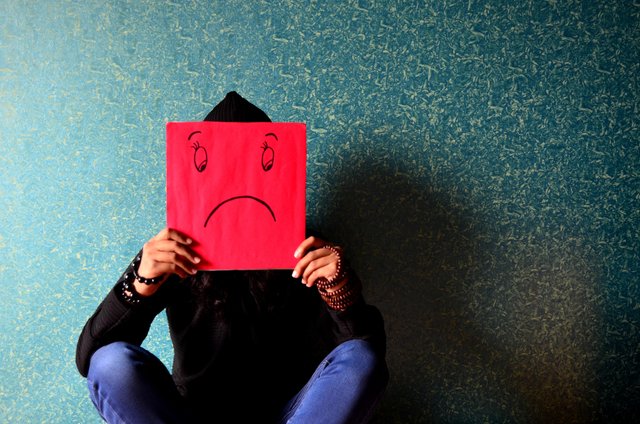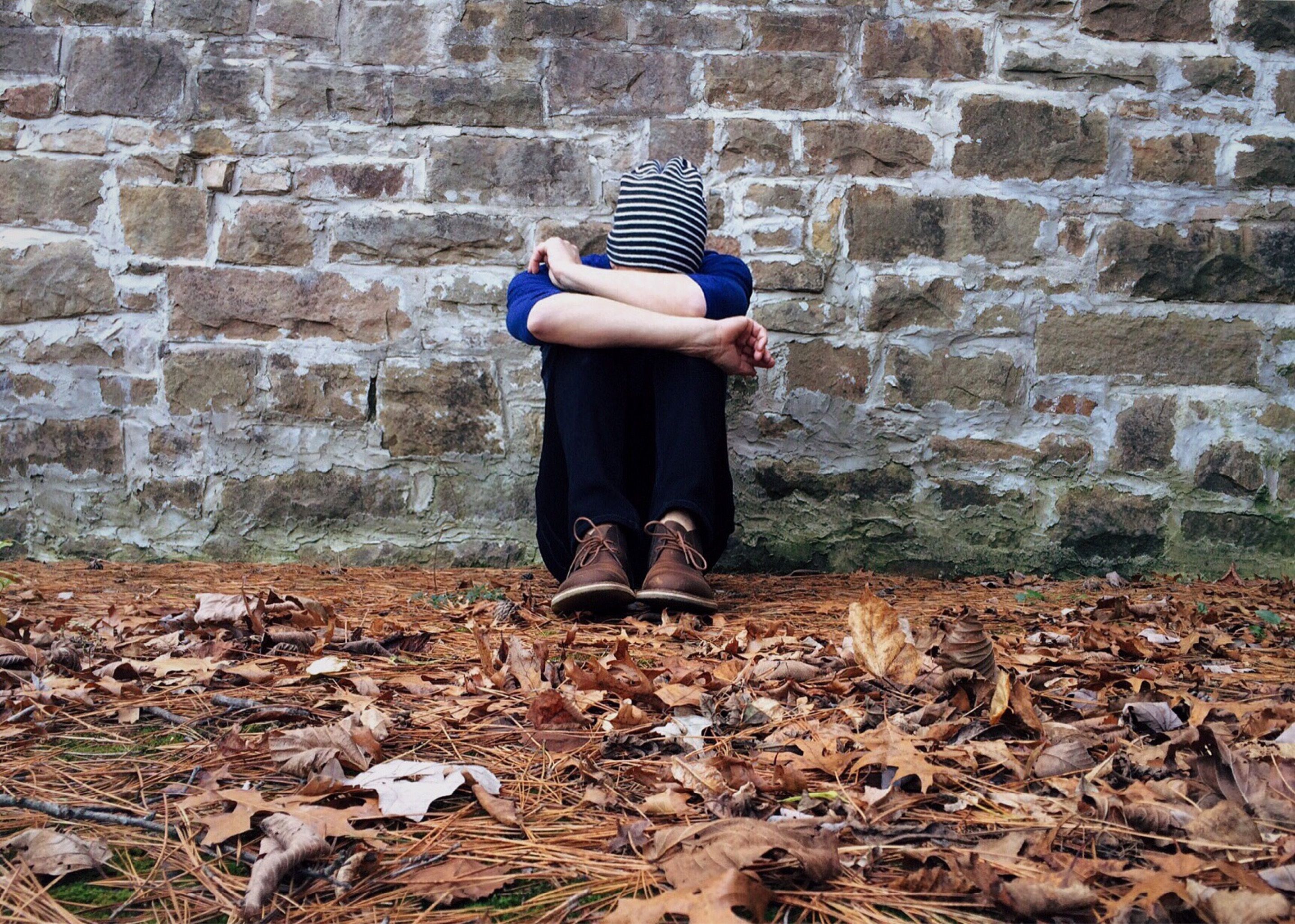
He grows a size in a month; he is moody, aloof and sarcastic; he wears strange clothes; he hangs out with an annoying gang... so you may ask: „where is the kid I used to know?" – Well, the answer is just one word: adolescence... This is a very important stage in our life, still, people usually do not have enough information on it. I am often asked by parents „what should I do with my teenage kid?", and it usually turns out that these parents have no clue about the physical and mental changes and challenges their children are facing during these years. Having two adolescent sons, I wish to give an insight into this transitional period with this series.
In the first and second parts of this series I was dealing with the characteristics of healthy adolescents, but I think it is worthwhile to have a look at the other side of the coin, so the third part was dedicated to eating disorders, the fourth part to sexual disorders and this post is focusing on adolescent depression.
We all feel under the weather occasionally, but these feelings usually pass within a short period of time. This is definitely not depression. We talk about this common illness, when this apathetic state remains for a longer period of time and it seems to interfere with the daily life of the patient (and/or those living together with him or her).

Anxiety or depression?
These two go hand in hand in case of teenagers. Although quite a lot of symptoms resemble depression in adults, it is not easy to identify this mental problem in adolescents. There are a lot of secondary symptoms and secondary problems that make the overall picture more variegated. Many times, we find some sort of an anxiety disorder running parallel to depression and here we face a real "chicken and egg" type of problem: it is very difficult to tell which was first: depression or anxiety. We usually have to deal with both.

Symptoms of depression in adolescence
There is a wide scale of symptoms and as you will soon see, in some cases we have opposites, too:
- Physical symptoms usually include fatigue and low energy levels (this can be indicated by sleeping too much, slower speaking, thinking or movements).
- Behavioral symptoms may involve poor mimicry, apathy ("everything is all the same") or on the contrary agitation (even angry outbursts and self-harm), changing mood (from extreme joy to extreme sadness).
As you see, we can meet all sorts of behaviours in depression; how can we tell then that our child has this problem? There are three indicators parents can look for, these usually work (especially if your teenage kid shows all three of them):
- The most important indicator is a significant decrease in school performance (obviously there can be different causes in the background, not only depression but in case it happens in a short period of time, for example in a few weeks, then you can strongly suspect the presence of some sort of psychological problem.)
- Isolation – if earlier your kid had a good social environment and now you see that he/she starts to hang out alone or prefers staying at home to going out with friends, it is also a strong signal that things have gone in the wrong way.
- Down-heartedness and sadness – without an obvious cause. You might experience that for a short period of time, your teenager "comes out of it", smiles and seems happy, but then the dark mood quickly returns. These quick mood changes are very characteristic in adolescent depression: you might see extreme ups and downs.
This is a point when parents can do a lot: talk to your kid and try to find out if he is able to manage these emotional changes or life seems overwhelming at the moment. Try to point out the strengths or the good side of the situation. These can help to manage the problem at hand.

Therapy
Adolescent therapy has to be quick, we usually do not have time to use traditional therapy settings (first interview plus 8-10 sessions and one closing session). We have to focus on phrasing the problem and solving it ASAP. It is a good thing that the teenager came to therapy, but going there once does not guarantee showing up for the second time, so we have to proceed as fast as possible.
There is a special 4-session-long teenager consultation that can be a good choice, but only experienced practitioners can do it and only with kids that came to the therapy alone (he/she is motivated to change). This is an intensive method involving four basic steps:
- phrasing the central problem (often what the teenager believes to be the problem is only the surface), here it is good if the therapist "scans" the most important areas of adolescent life (emotional and physical detachment from the parents, sexuality and finding his/her place in the society).
- working with emotions generated by this problem
- re-framing the problem – as long as we are able to phrase the problem, it usually starts to transform, here we can often achieve (and this is the goal of this session) that the adolescent receives a feedback about himself and about his own relation to his problem.
- closing the consultation.
This rapid, one-month-long consultation can socialize the adolescent to a therapeutic relationship, so he might show up again later if the problem is only partially solved or there is another arising.
Group therapies are also very effective – it is usually easy to organize thematic groups because they have similar problems. Groups usually provide a great opportunity for social learning.

Literature used
- Parrot, L.(2012): Parenting Your Teenager, Right Now Media
- Pickhardt, Carl (2013): Surviving Your Child's Adolescence, Wiley
- https://www.mayoclinic.org/diseases-conditions/teen-depression/symptoms-causes/syc-20350985
- https://www.psychologytoday.com/blog/the-race-good-health/201404/adolescent-depression-symptoms-and-solutions
Pictures and images used
All pictures used in this post are public domain images (CC0 license)
taken from the following sources:
1
2
3
4

i think we must have a good mood @ksolymosi
Downvoting a post can decrease pending rewards and make it less visible. Common reasons:
Submit
Absolutely true :-)))
Downvoting a post can decrease pending rewards and make it less visible. Common reasons:
Submit
what is easy to solve teenage problems?
Downvoting a post can decrease pending rewards and make it less visible. Common reasons:
Submit
Well, parents can do a lot in that...
Downvoting a post can decrease pending rewards and make it less visible. Common reasons:
Submit
Yeah if the parents are not busy with his job, I see many child businessmen who do not obey rules because they are less affection
Downvoting a post can decrease pending rewards and make it less visible. Common reasons:
Submit
True, unfortunately...
Downvoting a post can decrease pending rewards and make it less visible. Common reasons:
Submit
that's why I asked you a question, mam
Downvoting a post can decrease pending rewards and make it less visible. Common reasons:
Submit
Still, I believe that it's the parents' responsibility, the society cannot correct their mistakes...
Downvoting a post can decrease pending rewards and make it less visible. Common reasons:
Submit
yeah that's very true, mam
Downvoting a post can decrease pending rewards and make it less visible. Common reasons:
Submit
Great post @ksolymosi
Downvoting a post can decrease pending rewards and make it less visible. Common reasons:
Submit
Thank you...
Downvoting a post can decrease pending rewards and make it less visible. Common reasons:
Submit
omg
Downvoting a post can decrease pending rewards and make it less visible. Common reasons:
Submit
:-)
Downvoting a post can decrease pending rewards and make it less visible. Common reasons:
Submit
This post is sponsored by @appreciator in collaboration with #steemitbloggers. Keep up the good work
Downvoting a post can decrease pending rewards and make it less visible. Common reasons:
Submit
its interesting to think that every parent has gone through adolescence when they were growing up, yet dealing with it from their own child can be a mystery. i wonder if it's a matter of forgetting exactly how it was when they were young, or the fact that adolescence is different for everyone, or maybe a generational gap with society affecting how adolescence affects children now? Interesting read in either case!
Downvoting a post can decrease pending rewards and make it less visible. Common reasons:
Submit
I think both apply. :-)
Looking at our teenage years from a different perspective when we have grown up to be responsible parents AND the generational gap, too (plus the rapid changes and loads of uncertainties this society faces compared to previous ones).
We have to take care of our kids and talk to them as much as possible.
Thanks for the nice comment!
Downvoting a post can decrease pending rewards and make it less visible. Common reasons:
Submit
Downvoting a post can decrease pending rewards and make it less visible. Common reasons:
Submit
Thanks a lot for your support!
Downvoting a post can decrease pending rewards and make it less visible. Common reasons:
Submit